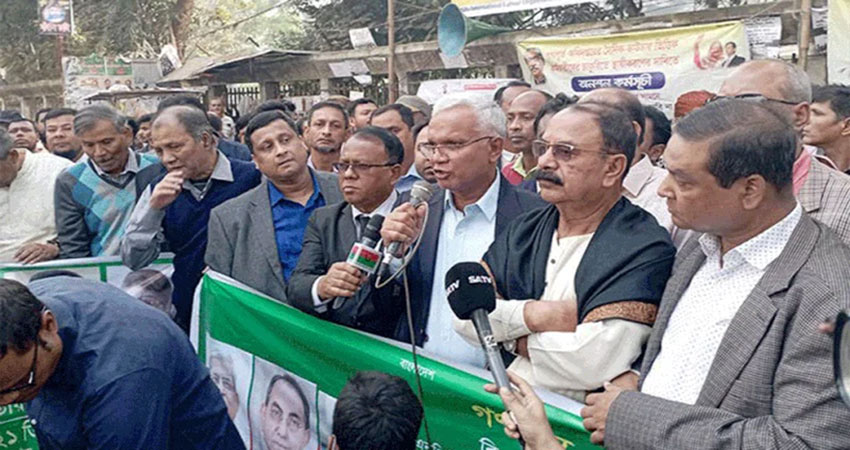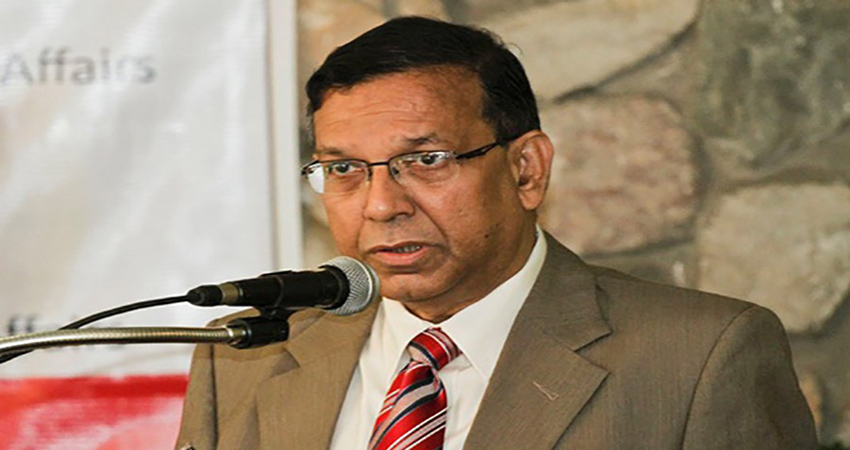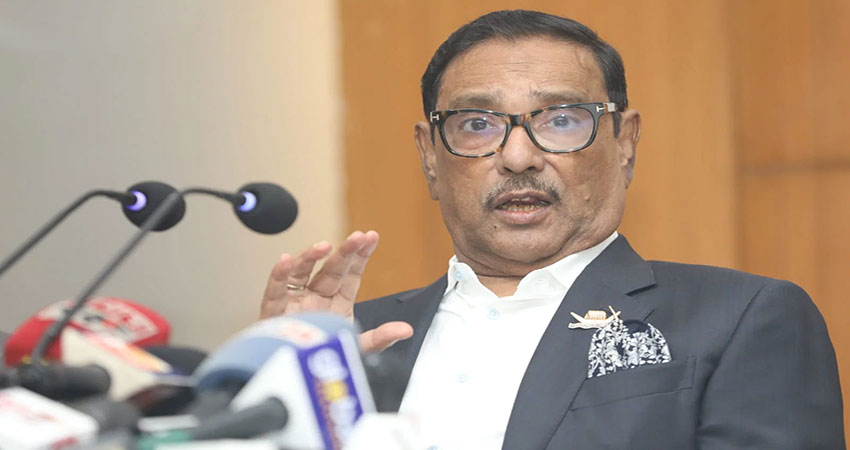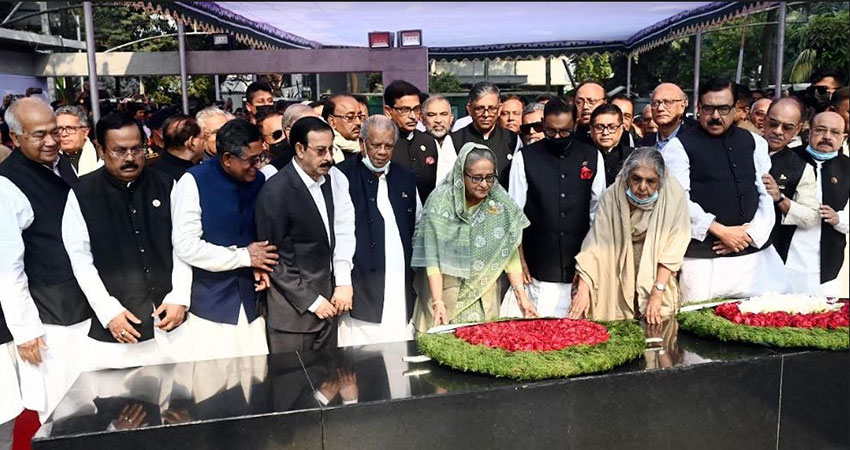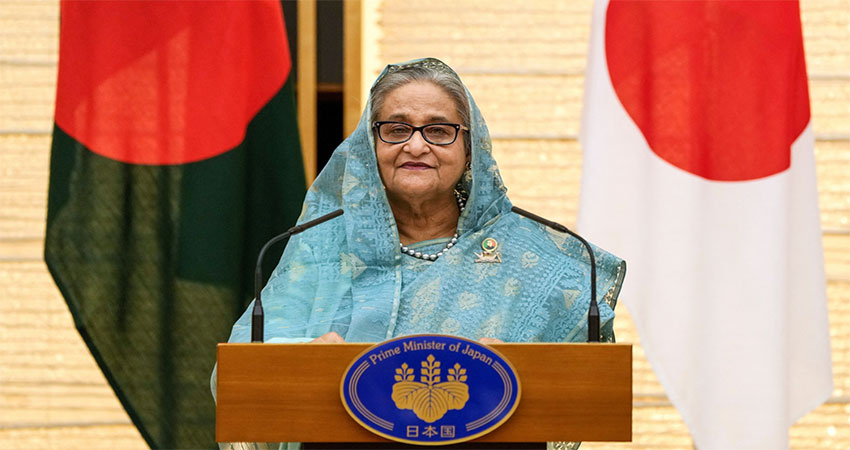BNP Chairperson Khaleda Zia must go back to prison first and then proceed through court if she wishes to go abroad for treatment, Prime Minister Sheikh Hasina said during an interview with Voice of America today (30 September).
In an interview with VOA Journalist Satarupa Barua, Sheikh Hasina said, "If they [BNP] want to take her [Khaleda Zia] abroad, they must go to court. They have to apply. She can go if the court permits."
"We have no scope to interfere in the court's activities. All I have been able to do as the prime minister is suspend her sentence on humanitarian grounds and allow her to stay home.
"She [Khaleda Zia] arranged the treatment herself. She is being treated at the most expensive hospital in Bangladesh," the prime minister said.
In the interview, Prime Minister Sheikh Hasina also talked about multiple other issues, including the US visa restriction, forced disappearance, election-time government etc.
'They can impose sanctions as they wish'
When asked about the recent US visa restriction, Prime Minister Sheikh Hasina expressed her frustration while stating that the United States has the authority to impose sanctions as they deem fit.
However, she questioned the validity of the sudden US sanctions.
"They talk about human rights or voting rights. The Awami League has actively advocated for the voting rights of the people of this nation. We have undertaken comprehensive measures for free and fair elections, such as introducing voters' lists with pictures, transparent ballot boxes, and promoting public awareness about their voting rights," she emphasized.
Prime Minister Hasina further highlighted the slogan "my vote, my choice" as a testament to her commitment to the democratic process and asserted, "Even the slogan 'amar vote ami dibo, jake khushi take dibo' coined by me.
The premier also claimed all the elections held since 2008 have been fair.
"Bangladeshi people are very aware about their vote. If someone gets elected by stealing votes, they [people] do not allow them to stay in power for long," she said, mentioning that BNP Chairperson Khaleda Zia stoles votes in 1996 and couldn't last even two months.
'Penalty has been reduced'
In response to criticism surrounding the Cyber Security Act, Prime Minister Sheikh Hasina addressed the significant modifications made in the updated Cyber Security Act 2023, replacing the heavily criticised Digital Security Act of 2018.
"The enactment of the new law is aimed at ensuring the security of the people, countering terrorism and militancy, and safeguarding the human rights of the citizens. It reflects the recommendations put forth by experts," the premier said, underscoring that the amended version includes a reduction in penalties.
The proposed Cyber Security Act introduces monetary penalties in lieu of imprisonment for defamation cases filed under the Act. Should the law be implemented, individuals will not face arrest by the police in defamation cases.
Sheikh Hasina emphasised the global prevalence of cyber laws, stating, "Cyber laws are not unique to Bangladesh; they exist worldwide.
She noted that the formulation of this recent amendment involved a comprehensive study of cyber laws in various countries."
When questioned about police accountability, the prime minister said there are provisions (Criminal Procedure Code) in place if law enforcement officials are found to be involved in any crime or extrajudicial action.
"If an individual is involved in criminal activities, and the police do not respond promptly upon receiving the information, there is a potential risk that the accused might escape or erase the evidence," she explained.
'Why don't they [UN] investigate by themselves?'
When asked about the United Nations (UN) report highlighting 70 unresolved cases of enforced disappearance in Bangladesh, Sheikh Hasina responded with a counter question saying, "Why has the UN not undertaken an investigation if they are dissatisfied with Bangladesh's response."
On 19 September, the UN said 70 cases of disappearances in Bangladesh have not yet been solved. The organisation had asked the Bangladeshi government about the status of a total of 88 disappearances. The government said five have been detained, and 10 are free.
According to Bangladeshi human rights advocates, security forces have committed over 600 enforced disappearances since 2009. While some people were later released, produced in court, or said to have died during an armed exchange with security forces, nearly 100 people remain missing.
The government has refused to take up the offer from the United Nations to help establish a specialised mechanism to investigate allegations of enforced disappearances in line with international standards, HRW said in a statement on the occasion of International Day of the Victims of Enforced Disappearances (30 August).
'Trying to persuade Myanmar to take their people back'
When asked about the resettlement of Rohingya in Myanmar, Prime Minister Sheikh Hasina said, "International assistance for Rohingyas has significantly decreased after the Covid-19 pandemic and the Russia-Ukraine war. Now, this burden is solely on Bangladesh."
"We ourselves have a large population in a limited area. Due to humanitarian reasons, we have provided them shelter. We are still providing all kinds of support to them.
"I want them to return to their own country [Myanmar]. Their children are born here and they have a future. These children cannot grow up healthy in these camps. The sooner they return to their own country, the better it is for everyone," she said.
Prime Minister Sheikh Hasina appealed to all parties concerned to take necessary measures for Rohingyas to return to their country. "The UN or NGOs can provide assistance," she said.
"As a neighbouring country, we are in talks with them. We are trying to make Myanmar understand that they should take back their citizens. But how long can this continue? Six years have passed already.
"In the Rohingya camps, safety is also a concern besides health. Many are getting involved in criminal activities such as drug trafficking, human trafficking, arms smuggling, and more," the premier said.
She said Bangladesh is still fulfilling its responsibilities by facilitating all assistance even though international support is lessening day by day.
"However, I urge international organisations to work together so that Rohingyas can return to their own country, live a decent life, and live like regular human beings."
When asked about recent security situations in the Rohingya camps, the Prime Minister stated, "We have made all kinds of security arrangements. Our joint forces are active there. Our police, army, and other law enforcement agencies are all active. Still, managing such a huge camp, understanding what's happening where among 1.1 million people is challenging."
Sheikh Hasina also said the government developed Bhasan Char island, and there are no such problems there. "Rohingyas are receiving training, arrangements for livelihoods have been made, schools are available, and there are medical centres as well," she said.
Good wishes to Bangladesh Cricket Team
Before concluding the 35:10-minute interview, the prime minister extended a heartfelt message to the Bangladesh Cricket Team, presently in India for the ICC World Cup 2023.
She said, "I expect all of you to play in a manner that upholds Bangladesh's honour. Play with all your might, and with sincerity."













